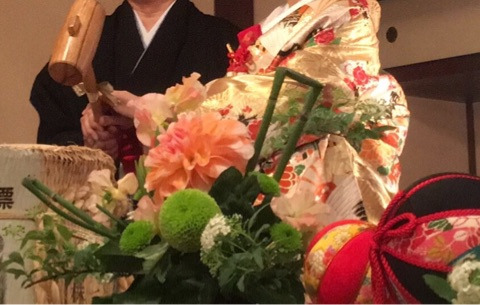
I grew up in relatively average sized towns across Ontario, Canada for the majority of my life. Most of them were not particularly identifiable from the other. For the most part, they were basically set up in the same style with the same big brands shops and the same mediocre public transportation systems. None of them left a particularly lasting impression on me as a child, but the longer I live in Japan, the more I come to realize there were a lot more attractive qualities in each of those quaint little northern towns than I had realized.
One of the things that shocked my system when I first moved to Tokyo was the abundance of transportation options. Trains and buses seemed to have an endless amount of lines and routes sprawling from the center of Tokyo and spreading out all across Kanto. Someone from a Northern Canadian town would definitely feel like that system is quite daunting at first, and would probably need a lot of assistance from the staff or a friendly passersby to point them in the right direction in order to reach their final destination. There is also a lot of unfamiliar train etiquette that most people in Tokyo can adhere to without question, but as a newcomer who is only used to the Canadian bus system, it may be quite inevitable that they unintentionally commit a faux pas. Small things like no eating or drinking on the train may be a surprise, and especially being reminded to not talk on the cell phone may seem like a nuisance to people from Canada, who back home, are not discouraged at all from talking on their bluetooth headsets for the entire duration of their journey. In Canada, no one would even bat an eye, but in Japan the above can be considered inconsiderate.
Going hand in hand with the abundance of train etiquette comes the sheer surprise at the endless sea of people that flood the gates of major stations like Shinjuku station or Yokohama station. Knowing how to deal with the mass crowds of Tokyo at rush hour could test the patience of any Canadian newcomer. It takes a lot of resilience, patience, and determination to master the art of navigating the flow of the crowds in Tokyo. In smaller cities in Canada, a long line at the grocery store can easily set off the temper of an irritable customer. However, in Japan one can expect people on platforms and train stations to weave between the crowds and cut the lines with a simple nod of the head to signify that they will join the line in front of you. This can come off as shockingly rude in western countries, but unfortunately in Japan it is really just a necessary way of dealing with crowd control, so foreigners will have to learn to politely nod their head back in acknowledgement and silently continue to tip toe forward at a snail’s pace, until they can reach the end of the platform.
Another issue that may challenge the sensibilities of Canadian customers is the lack of sizes and little accommodation for those who prefer looser fitting clothing. One of the things I struggle with on a regular basis is trying to find a pair of shoes that fit comfortably, without sacrificing my personal sense of style, or paying above my desired price range. Naturally, Japan caters to its own citizens when it comes to clothing sizes and fashion styles, but being someone who has a larger frame and longer foot length, I can’t help but feel a little ashamed that I cant often fit into the `free size` clothes off the rack at most department stores, or purchase a new pair of shoes without asking the staff if they come in a much larger size.
Even though these problems can be quite a nuisance on a semi-regular basis, the fact of the matter is none of these problems have ever put me off from living in Japan. Living abroad in any country will always come with its unique set of trials and tribulations, but I have yet to encounter anything in Japan that has sent me packing back home. If anyone from Northern Canada ever has the inclination to live in Tokyo, or anywhere else in Japan, I have no doubt that they can remain happy and healthy if they keep a cool head and an open mind.
Kailey
Vocabulary
mediocre (adj.) – of only average quality; not very good
quaint (adj.) - attractively unusual or old-fashioned
daunting (adj.) – seeming difficult to deal with; intimidating
faux pas (noun) – a slip or mistake in etiquette or conduct; an embarrassing social blunder
bat an eye (idiom) – showing no emotion; acting as though nothing were unusual
tribulation (noun) - a cause of great trouble or suffering
ネイティブ講師と話すならこちら!
英語学習をフルサポート!
マンツーマン&コーチングの英会話教室




















